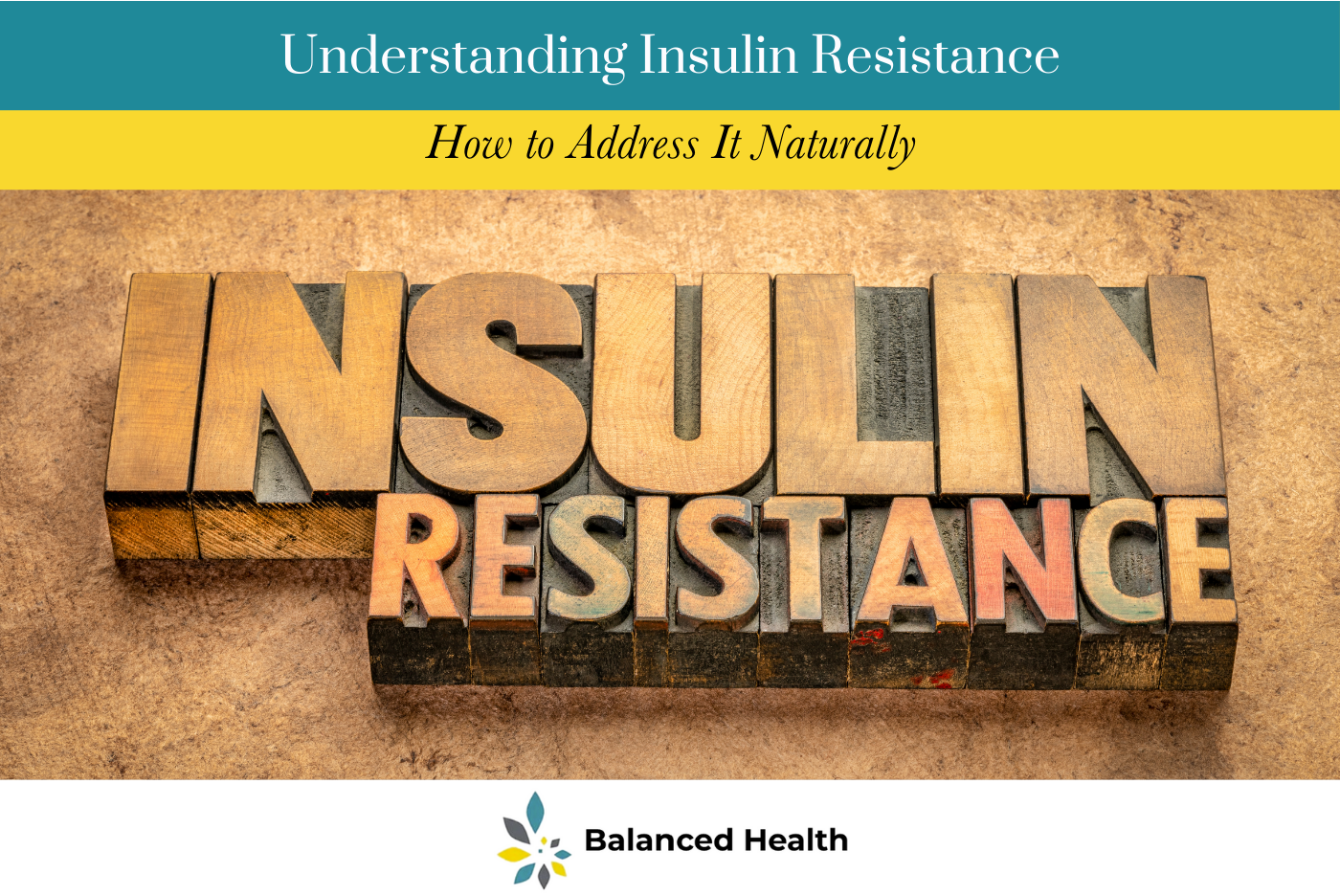 What Is Insulin Resistance?
What Is Insulin Resistance?
Insulin resistance is a condition where the body’s cells become less responsive to insulin, a hormone produced by the pancreas that helps regulate blood sugar levels. As a result, the pancreas produces more insulin to compensate, leading to higher insulin levels (hyperinsulinemia) and blood sugar instability. Over time, this can progress to prediabetes or type 2 diabetes if not addressed.
Causes of Insulin Resistance
- Diet: High intake of refined carbohydrates and sugars.
- Sedentary Lifestyle: Lack of physical activity can decrease insulin sensitivity.
- Chronic Stress: Stress hormones, like cortisol, can disrupt insulin’s function.
- Obesity: Particularly abdominal fat, which can release inflammatory markers.
- Sleep Issues: Poor sleep or conditions like sleep apnea can exacerbate insulin resistance.
- Genetics: Family history of diabetes or metabolic conditions.
Symptoms of Insulin Resistance
Insulin resistance often has no obvious symptoms, but common indicators include:
- Fatigue
- Cravings for sugar or carbohydrates
- Difficulty losing weight
- Increased hunger
- Dark patches of skin (acanthosis nigricans)
- Elevated blood sugar levels
How to Address Insulin Resistance Naturally
1. Optimize Your Diet
- Focus on Whole Foods: Emphasize whole grains, lean proteins, healthy fats, and fiber-rich vegetables.
- Limit Sugars and Refined Carbohydrates: Avoid sugary drinks, desserts, and white flour products.
- Increase Omega-3 Fatty Acids: Found in fish, flaxseeds, and walnuts, omega-3s help reduce inflammation.
- Incorporate Apple Cider Vinegar: Studies suggest it may improve insulin sensitivity.
2. Regular Exercise
Physical activity is one of the most effective ways to enhance insulin sensitivity.
- Strength Training: Builds muscle, which uses glucose more effectively.
- Aerobic Exercise: Improves cardiovascular health and reduces blood sugar levels.
- Consistency Matters: Aim for at least 150 minutes of moderate activity per week.
3. Maintain a Healthy Weight
Losing even 5-10% of body weight can significantly improve insulin sensitivity.
4. Prioritize Sleep
- Set a Routine: Aim for 7-9 hours of quality sleep per night.
- Address Sleep Disorders: Conditions like sleep apnea can worsen insulin resistance.
5. Manage Stress
Chronic stress can elevate cortisol levels, which negatively impacts insulin function.
- Practice mindfulness, yoga, or meditation.
- Engage in hobbies or activities that bring joy.
6. Incorporate Natural Supplements
Certain supplements may aid insulin sensitivity:
- Magnesium: Supports insulin regulation.
- Cinnamon: Shown to help stabilize blood sugar levels.
- Berberine: A plant compound with effects similar to the diabetes drug metformin.
Comprehensive Q&A
Q: Can insulin resistance be reversed naturally?
A: Yes, with lifestyle changes such as a balanced diet, regular exercise, stress management, and adequate sleep, many individuals can improve or reverse insulin resistance.
Q: How long does it take to improve insulin sensitivity?
A: The timeframe varies by individual, but significant improvements can often be seen within a few weeks to months of adopting a healthier lifestyle.
Q: Are there specific foods that help with insulin resistance?
A: Yes, foods like leafy greens, avocados, nuts, seeds, fatty fish, and whole grains are excellent for managing insulin resistance.
Q: Should I completely avoid carbohydrates if I have insulin resistance?
A: Not necessarily. Focus on complex carbohydrates with a low glycemic index, such as quinoa, oats, and sweet potatoes, and avoid refined carbs and sugars.
Q: How does intermittent fasting impact insulin resistance?
A: Intermittent fasting has been shown to improve insulin sensitivity and help regulate blood sugar levels in some individuals. However, consult a healthcare provider before starting any fasting regimen.
Why Choose Balanced Health?
At Balanced Health, we offer a comprehensive approach to managing insulin resistance. Our team focuses on personalized care, combining natural remedies with evidence-based strategies to help you achieve lasting health improvements.
Contact Us
Balanced Health
📍 Address: 1819 Union St, San Francisco, CA 94123
📞 Phone: (415) 915-5454
📧 Email: contact@drerikahorowitz.com
🌐 Website: BalancedHealthSF.com
Take the first step towards better health by scheduling a consultation today. Let Balanced Health guide you on your journey to restoring insulin sensitivity naturally!
 Balanced Health
Balanced Health